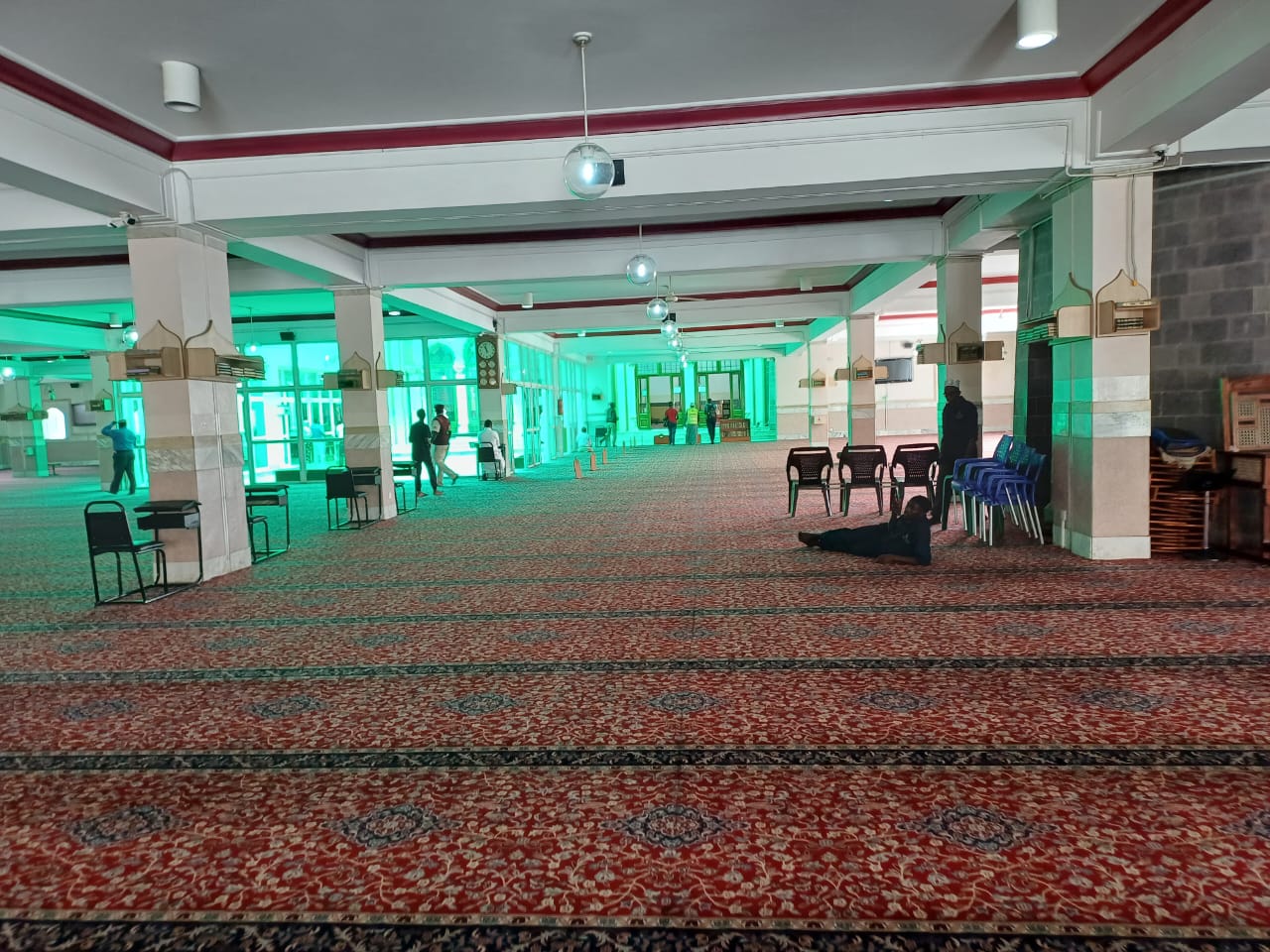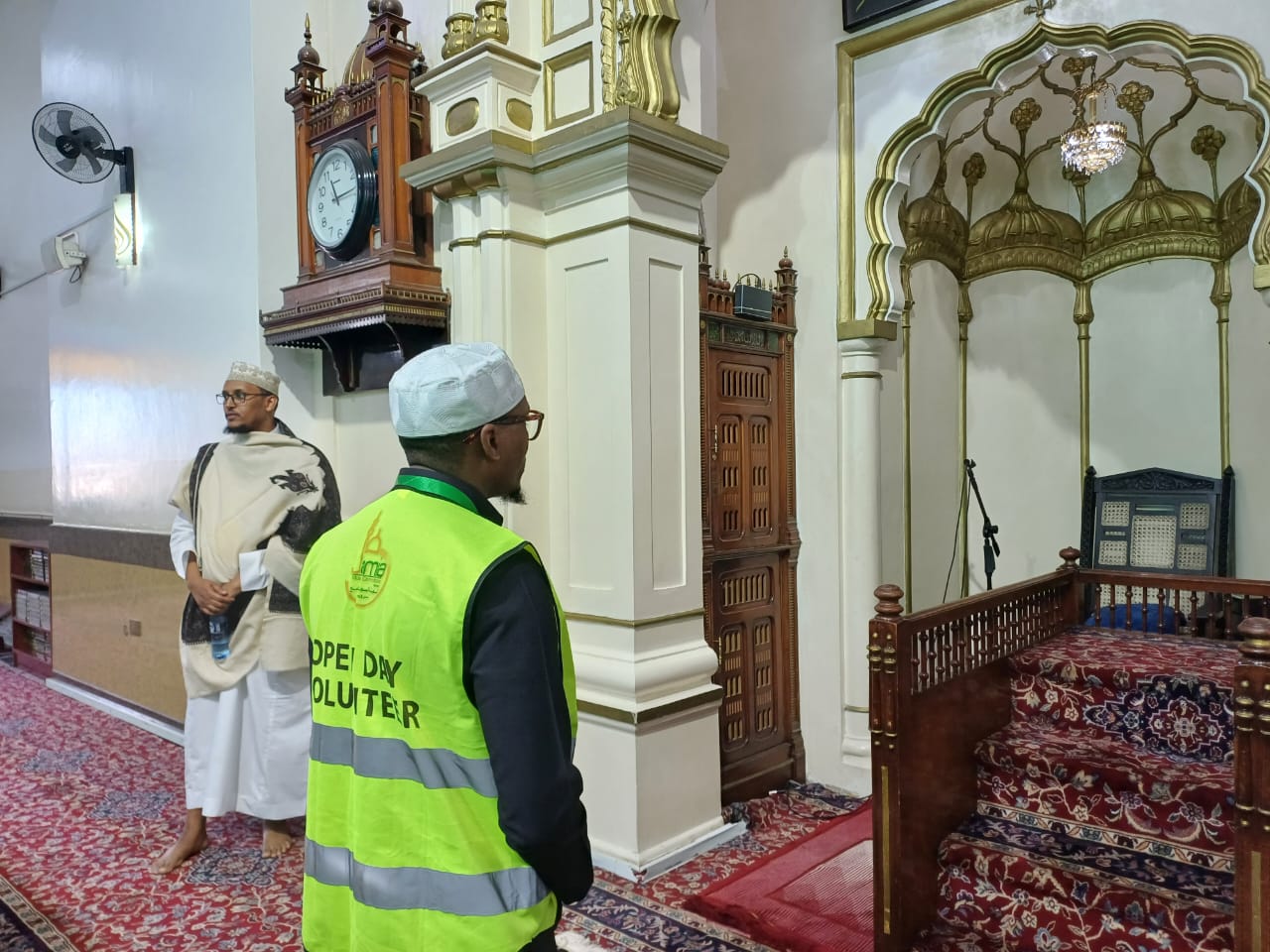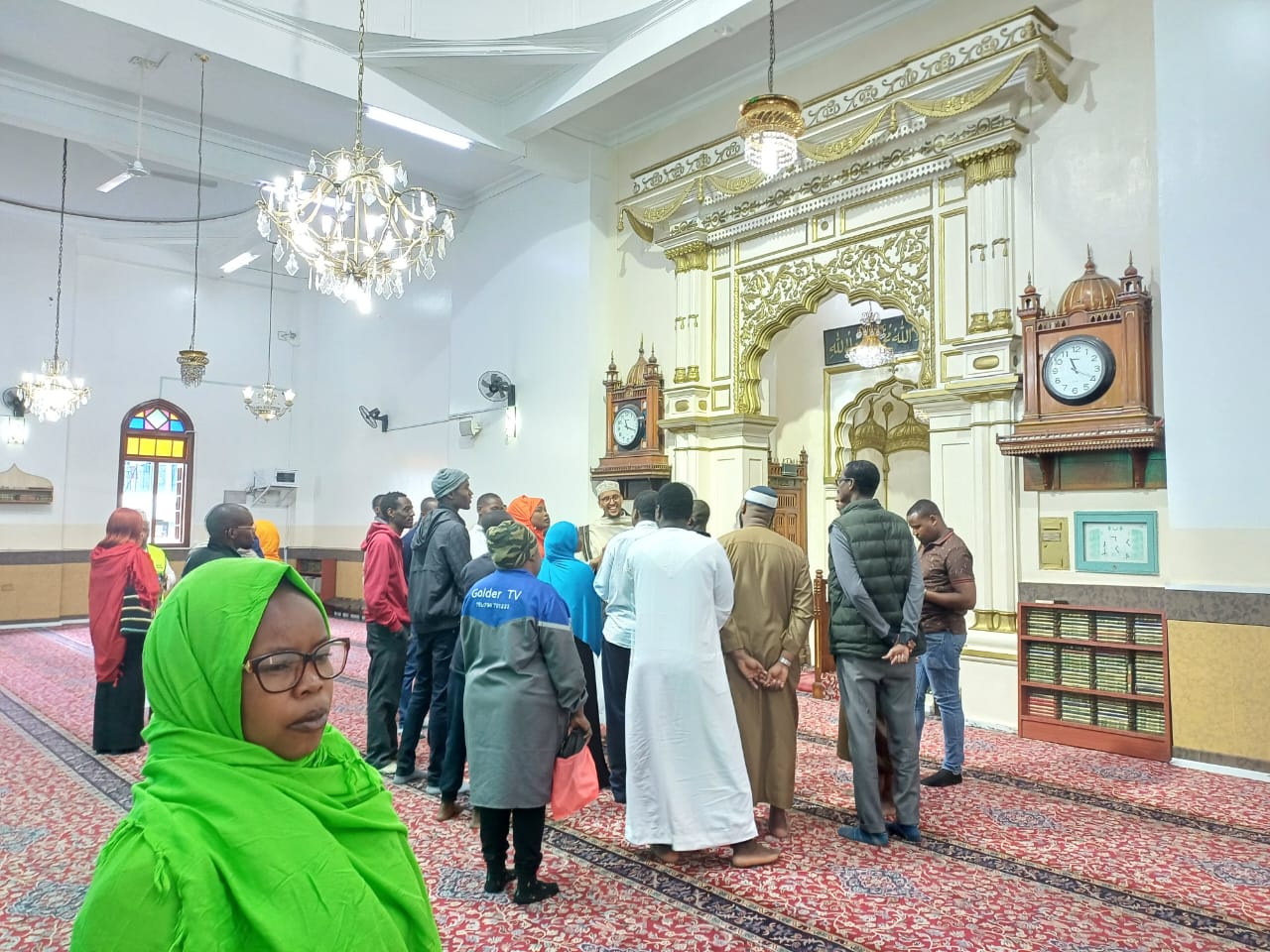Hundreds visit Jamia Mosque to experience Islam faith, teachings as it hosts 7th open day
The open day aimed to allow Kenyans of other faiths to experience what takes place inside the mosque, gain an understanding of Islam, and dispel misconceptions about the religion.
Hundreds of Kenyans gathered at the iconic Jamia Mosque along Banda Street on Saturday to gain insight into Islam and observe how Kenyan Muslims worship in this sacred space.
Jamia Mosque is one of the country's historical landmarks, representing Kenya's journey to independence.
More To Read
- Jamia Mosque Nairobi celebrates 100 years with commemorative book, Jamia TV rebrand
- Jamia Mosque Secretary-General Abdulbari Hamid honoured with National Hero Award
- Jamia Mosque marks 100 years with photo exhibition, centenary events celebrating faith and community service
- Muslim ritual meets Swahili culture at Kenya’s unique annual Maulidi festival
- Halal business workshop seeks to drive growth in East Africa
- Mandera residents hold special prayers for rain as drought bites
Constructed in the early 1900s in the traditional Arab-Islamic architectural style, it features two minarets and three silver domes. Over time, the mosque has been expanded to accommodate the growing number of worshippers and now includes a library, a general hall, and a media studio.
“Jamia Mosque is an old mosque. The front part was built in 1925 by Muslims of the Indian community who were involved in the construction of the railway. You can see that the architecture inside the mosque is consistent, whether you go to Nakuru or Isiolo, as it was the same people who built it,” explained Jamaludin Osman, the mosque’s Imam.
 Inside Jamia Mosque, along Banda Street in Nairobi. (Photo: Mary Wambui)
Inside Jamia Mosque, along Banda Street in Nairobi. (Photo: Mary Wambui)
The open day aimed to allow Kenyans of other faiths to experience what takes place inside the mosque, gain an understanding of Islam, and dispel misconceptions about the religion.
“The reason we have open days is to provide people of other faiths the opportunity to come in and ask questions openly about Islam. There are many misconceptions and a lot of misinformation about Islam. So, we are offering them the chance to come into the house of Allah Subhanahu Wa Ta'ala and receive authentic answers—not from the media, social media, or the internet, but directly from us, as we are knowledgeable and can provide answers based on the holy scriptures,” the Sheikh added.
The event, according to the mosque, attracted over 700 visitors, the majority being Kenyans with a few non-Kenyans in attendance.
The itinerary included a guided tour of the prayer area, a brief narration of the mosque’s history, teachings on the core beliefs of Islam, and a discussion aimed at addressing misconceptions about the faith, led by Sheikh Ibrahim Lethome.
All visitors left with gift packs containing the Holy Quran in English translation.
 Jamia Mosque's Adhan, the person who recites the Muslim call to prayer, demonstrates how he does it. (Photo: Mary Wambui)
Jamia Mosque's Adhan, the person who recites the Muslim call to prayer, demonstrates how he does it. (Photo: Mary Wambui)
The scholar explained that the true sources of Islamic teachings are found in the Holy Quran, the Sunna (teachings of the Prophet contained in books), Ijma (consensus of Muslim scholars), and Qiyas (analogical deductions).
During an animated forum, Sheikh Ibrahim addressed visitors’ questions, which ranged from the difference between Jesus and the Prophet Muhammad, to why Muslim men and women pray in separate areas within the mosque, and what Islam says about interfaith relationships.
He explained that the separation of men and women in the mosque is to ensure that each gender can focus on worship.
“We are human beings. If I want to admire my wife, I would do so at home or in the car. The mosque is a place of worship, and I do not want another man admiring my wife. I do not understand why this should be an issue because even in public spaces, we have separate ‘ladies’ and ‘gents’ facilities. Why don’t we have unisex toilets? Why do we have maternity wings? It’s because women have specific needs and require their privacy,” he explained.
The scholar added that contrary to popular belief, Islam grants women more rights and freedoms than men.
“We are often told that Islam discriminates against women, but this is a misconception. It is simply that there are specific ways that Muslims handle and treat women, distinct from how men are treated. Muslim women are even accorded better treatment than men,” he said.
 Some of the visitors at Jamia Mosque, as it marked it's 7th open day. (Photo: Mary Wambui)
Some of the visitors at Jamia Mosque, as it marked it's 7th open day. (Photo: Mary Wambui)
While in some contexts, it is expected that a man and a woman will share household expenses, in Islam, if a woman earns Sh500,000 and a man earns Sh10,000, the woman has the right to use her income as she wishes, the Sheikh added.
Other visitors sought to understand Islam’s stance on cross-faith marriages, why Muslim men are allowed to marry more than one wife, and the push for the ban on muguka (a type of stimulant).
“They are intoxicants and alter one’s state of mind. Anything that changes the state of mind is considered prohibited, which is why some Muslims advocate for a ban on muguka. Miraa, muguka, cannabis, and anything else that affects the state of mind is not permissible,” he said.
 Sheikh Jamaludin Osman, Imam at Jamia Mosque explains the history of the mosque. (Mary Wambui)
Sheikh Jamaludin Osman, Imam at Jamia Mosque explains the history of the mosque. (Mary Wambui)
Regarding ongoing global conflicts, Sheikh Jamaludin urged people to work together to promote peace.
“We are facing many challenges as human beings. As humanity, we are experiencing a lot of injustice, and we need to work together. Even if we do not share the same faith, we can collaborate to make the world a better place,” he said.
Top Stories Today















































